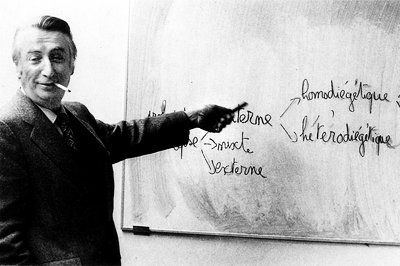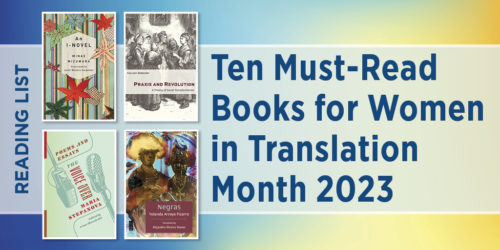Roland Barthes on Writing and the Vita Nova — From The Preparation of the Novel
Continuing our feature on The Preparation of the Novel, by Roland Barthes, we have posted an excerpt from the first session. The lecture series began shortly after the death of Barthes’s mother, which inspired to some extent his decision to write or prepare to write a novel:
All of a sudden, then, this self-evident truth presents itself: on the one hand, I have no time left to try out several different lives: I have to choose my last life, my new life, Vita Nova (Dante) or Vita Nuova (Michelet). And, on the other, I have to get out of this gloomy state of mind that the wearing effects of repetitive work and mourning have disposed me to → This running aground, this slow entrenchment in the quicksand (= which isn’t quick!), this drawn-out death of staying in the same place, this fate that makes it impossible to “enter death alive” can be diagnosed in the following way: a generalized and overwhelming accumulation of “disinvestments,” the inability to invest anew → In the Middle Ages, a word: acedy. It can immediately be clarified that, if said and conceived of in a certain way, and despite the overuse of the word, acedy (a theme we’ll encounter again) is irreplaceable: the inability to love (someone, other people, the world) → Unhappiness often translates as the impossibility of giving to others.
To Change
So, to change, that is, to give a content to the “jolt” of the middle of life—that is, in a sense, a life “plan” (a vita nova). Now, for someone who writes, who has chosen to write, that is to say, for someone who has experienced the jouissance, the joy of writing (not unlike the “first pleasure”), there can be no other Vita Nova (or so it seems to me) than the discovery of a new writing practice. Of course, one can imagine changing topic, doctrine, theory, philosophy, method, belief (and some people do: major doctrinal mutations occur as the result of an event, a trauma). But to change ideas is banal; it’s as natural as breathing. To invest / disinvest / reinvest, there you have the very drive of intelligence in that it desires; Intelligence (a Proustian notion, what’s more) has no other means of displaying its desire than by bestowing / withdrawing love, because its object isn’t a form and therefore isn’t fetishizable; even inveterate militants are hard to come by (more and more so): they always get cited as examples ≠ “faith” is different: there are those who turn to it, those who withdraw from it, but, as a general rule, it’s tough, because it’s linked to death. Therefore, for someone who has written, the domain of the Vita Nova can only be that of writing: the discovery of a new writing practice. The New expectation is only this: that the writing practice should break with previous intellectual practices; that writing should be detached from the management of the earlier movement: the writing subject is under a social pressure to become (to be reduced to) his own manager, to manage his work by repeating it: it’s this daily grind that must be interrupted.





